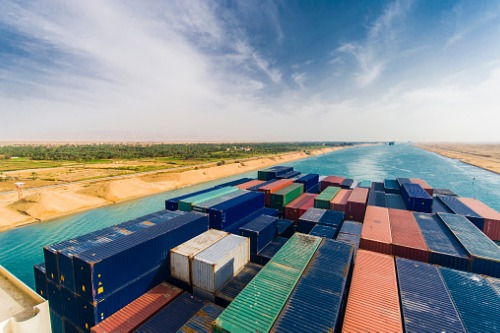

The blocking of the Suez Canal and the resulting disruption to global shipping is likely to cause a large loss event for the reinsurance sector, according to Fitch Ratings.
The canal was blocked March 23 when 400-meter cargo ship Ever Given ran aground during high winds. Fitch Ratings said the event would reduce global reinsurers’ earnings but should not materially affect their credit profiles. However, prices for marine reinsurance will rise as a result of the grounding, Fitch said. The ship was freed Sunday and transit through the canal has resumed.
Fitch estimated the losses from the nearly weeklong blockage may run into hundreds of millions of euros. However, claims related to hull and cargo insurance, including salvage, should remain significantly below that level since the Ever Given was still seaworthy once freed.
However, Fitch said that the shipowner’s protection and indemnity club would likely face claims from the owners of the cargo on the Ever Given and the other ships that were blocked in the Suez Canal for losses related to perishable goods and supply-chain disruptions. They may also face claims from the Suez Canal Authority for loss of revenue.
Read more: Grounded ship halts trade through Suez Canal
A large part of those losses will probably be reinsured by a global panel of reinsurers, Fitch said. In isolation, the loss event should be neutral to their credit profiles. However, Fitch said it would add pressure to reinsurers’ first-half earnings – earnings that have already been impacted by catastrophes like winter storms in the US and flooding in Australia, as well as by COVID-19-related losses.
Last year, global reinsurers reported steep drops in earnings due to paid claims and claims reserves related to the pandemic. However, underlying performance improved due to significant price hikes in non-life primary and reinsurance, and their capital positions were strong at the end of 2020, Fitch said. The catastrophe events in 2021 will likely put more strain on the commercial insurance and reinsurance markets and push prices even higher.
